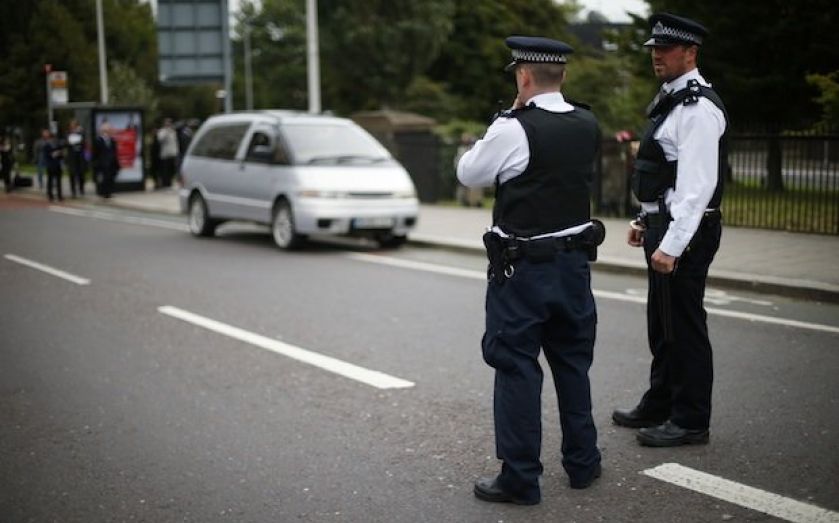Police can intensify the fight against crime with private sector expertise

THE ECONOMIC crisis has had a lasting effect on London. Much has been negative. But less well-known is that, with the government determined to cut the deficit, the public and private sectors are increasingly finding common ground, by working together in unique and integrated new ways. London’s police force is a case in point.
I know only too well the pressure and scrutiny the police face on a daily basis. I’ve been fighting crime my whole life, both as a policeman and now as chief executive of a crime fighting company. One of the most frustrating experiences for the police is catching a thief, but being unable to prove beyond doubt that the goods had belonged to someone else.
This is where private enterprise and technological ingenuity come in. The police do a fantastic job in difficult circumstances. Given that budgets are stretched, they should take great pride in the fact that overall crime is falling. Much can be attributed to the professionalism of the officers themselves. But modern, innovative technologies that place the emphasis on preventing crime, rather reacting to it, are improving results further. And experimentation – drawing on the experience and new ideas of the private sector – can help intensify progress.
In an independent trial with the Metropolitan Police, my company applied a revolutionary approach to crime prevention, incorporating an extensive roll-out of a water-based forensic marking technology; targeted covert operations; engagement with retailers of second-hand goods; equipping police with new, state-of-the-art detection equipment; and providing specialist testimony in criminal courts.
While crime doesn’t pay, preventing it can. In this trial partnership, we reduced domestic burglaries in two London boroughs, Brent and Islington, by 85 per cent and 63 per cent respectively. Importantly, we have also achieved a 100 per cent conviction rate. The Home Office estimates that each burglary costs the taxpayer around £4,000. Our trial equates to a £1.4m saving, therefore, and a potential £160m saving for London if implemented across the capital.
There is also a wider significance to these results. UK police forces have come under great scrutiny for how they use new technologies. The Met was recently criticised in a report by the London Assembly for not deploying new techniques.
This is unfair. The Met has been set an ambitious target of reducing crime by 20 per cent while also increasing efficiency and public confidence by the same percentage. But as our partnership demonstrates, not only can targets like these be achievable, but we could also set a benchmark for the future of public-private collaboration in UK policing.
The Met should be congratulated for having the foresight and professionalism to break down traditional barriers. The private sector can help the police introduce important new technologies, and take the fight to the criminal fraternity.
Phil Cleary is chief executive and co-founder of SmartWater.